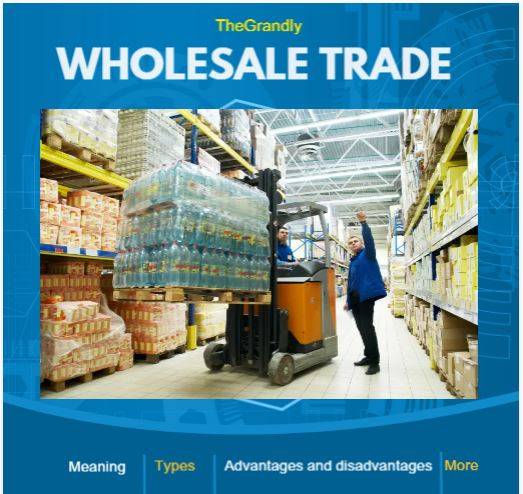E-commerce in Nigeria reached extraordinary numbers during the year 2020: it grew by 79% and became the fastest developing retail e-commerce market in this part of the world.
During 2021, the good news for e-commerce in Nigeria continued, as the nation joined some of the top countries with the greatest growth potential in electronic commerce.
In this scenario, it is convenient and opportune to bet on online sales, especially for Nigerian entrepreneurs.
Now, before knowing what characterizes marketplace and e-commerce in Nigeria, it is possible that there are doubts about the meaning of this term. Let’s briefly see what it is.
What is an e-commerce?
E–commerce is the exchange of goods or services over the internet. The term is a conjunction of two expressions in English: e (electronic) + commerce (commerce) .
From a semantic point of view, it is a literal translation for “electronic commerce”.
Among the best known types of e-commerce we can mention:
- B2B : Business to Business , which refers to a commercial transaction between two companies that have a presence and operations on the Internet.
- B2C : Business to Consumer, which promotes business relationships between businesses of any size and consumers of the goods and services of that business.
In addition to this distinction, e-commerce can be classified according to the business model. In this case, an e-commerce can be:
- an online store ;
- a marketplace ;
- or sale through drop shipping (model where the seller does not have its own stock ).
After this conceptual review, let’s see exactly what characterizes e-commerce in Nigeria and what are the platforms you can use to create yours.
Who buys online in Nigeria?
48% of Nigerians who buy online are between 25 and 49 years old. In addition, smartphones are their favorite devices to use in making their online transactions.
According to a report, 5 categories that sold the most in the first half of 2021 were:
- Groceries
- Clothing (non-sports)
- Home, furniture and garden
- Cleaning articles
- Accessories for motorcycles and cars
In relation to the groceries category, 35% of Nigerians now buy more than half of mass consumption products online. While, before the pandemic, it was only 15% that did.
Another aspect of Nigerian digital buyers to take into account is the ability of promotions to influence their purchase decision. 85% of Nigerian consumers are willing to change the choice of a brand based on promotions.
A recent study of the sales process for e-commerce in Nigeria explains how the online channel is more important than the offline channel in the initial stage of the customer journey; that is, the journey that the customer takes through the different points of contact with the brand.
70% of consumers research online the opinions of other consumers, discounts, characteristics of the product or service and the price before making a purchase.
7 out of 10 buyers research online before making a purchase; 91% believe that their final purchase was influenced by previous online research.
A final figure to understand the characteristics of the user who buys through e-commerce in Nigeria reveals that; half of consumers are trying new brands and online stores.
Special e-commerce Terms in Nigeria to Look Out For
I discovered below what are the important terms for e-commerce in Nigeria to make discounted or promotional purchases online:
- Hotsale
- Cyber Monday
- Black Friday
- Christmas promo
- Mother’s Day
- Father’s day
- children’s day
- Valentine’s Day
E-commerce platforms in Nigeria

An e-commerce platform is a complete solution to create an online store that does not require technical knowledge or previous experience.
Below you will find platforms e-commerce in Nigeria that you can use for your business:
1. Jumia
The leading e-commerce platform in western Africa, with thousands of active stores throughout the continent. In addition, it has offices in
- Nigeria.
- Algeria.
- Cameroon.
- Ghana.
- Portugal.
- Senegal.
- South Africa.
- Tanzania,
Among the many benefits of this platform, as e-commerce in Nigeria, we highlight:
- Affordable prices.
- Customizable design templates.
- Simplified stock management.
- Alliances with payment gateways, and with logistics solutions.
- Integrations with Google Analytics, Facebook Shops and Instagram Shopping.
- Specialized customer service.
- Articles, courses, e-books and videos —free of charge!— on online sales and digital marketing on our blog.
2. WooCommerce
A WordPress plugin with high customization capabilities to us for your e-commerce site.
3. Magento
An open source platform that also has high customization capabilities, as well as a high level of security.
4. Wix
It allows you to create web pages and virtual stores. In America, it has offices in Canada, the United States and Brazil.
5. Shopify
It is a digital solution that has different functionalities, such as the possibility of creating gift cards in online stores.
E-commerce Nigeria: 5 recommendations to succeed
To end this tour of e-commerce in Nigeria, we share 5 key tips for you to be successful with your online business:
- Create a responsive design. If you want to create a virtual store for your online sales channels , make sure it has a responsive design. This means that the elements that make up the page adapt to the screen size of any device.
- Offer a variety of payment methods . The credit card is the most used payment method for Nigerians who buy online. However, cash payments and bank transfers are still relevant.
- Plan the logistics well. This is one of the pillars to be successful with transportation in electronic commerce ; whether state-wise or nationally or even internationally.
- Use other channels. In addition to selling through your e-commerce, you can expand the reach of your brand by selling through social networks and related marketplaces .
- Apply good SEO practices. This is search engine optimization and it is another infallible strategy to ensure that your brand is present every time someone searches for a product related to what you sell.
Now, we hope w have helped you to know a little more about e-commerce in Nigeria; Show the world what you are capable of!






